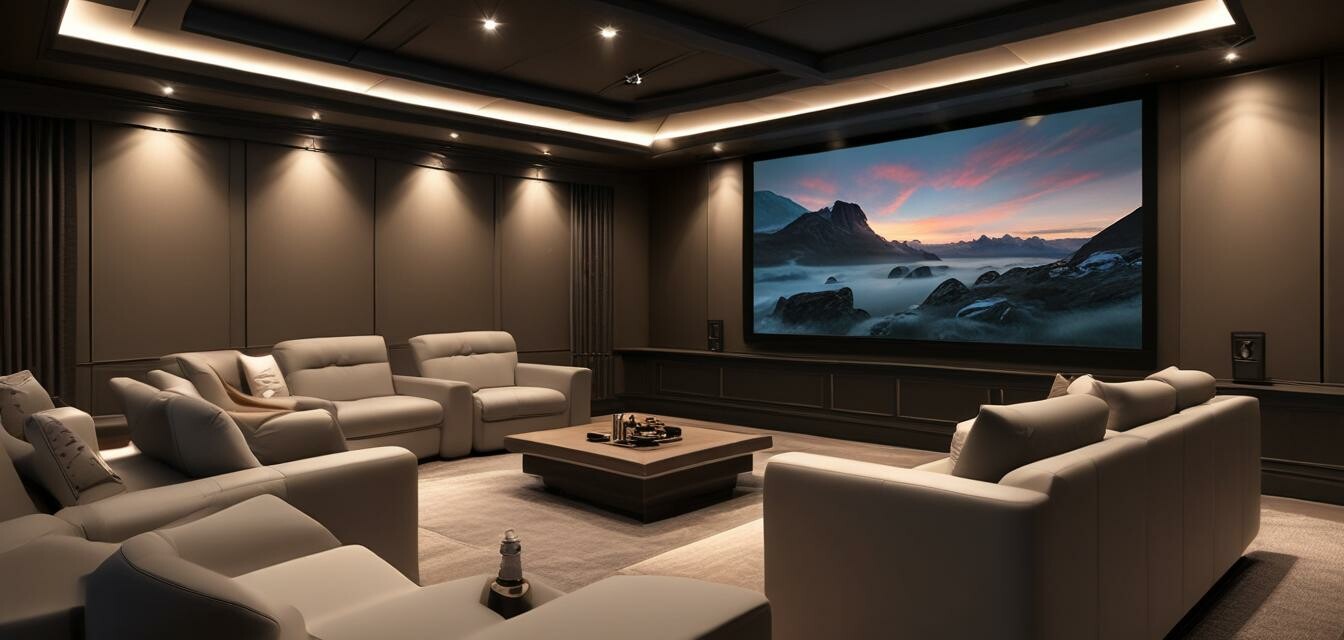
Comparing projector vs TV for your home cinema
Key Takeaways
- Projectors are great for larger screens and cinematic experiences, while TVs excel in detail and brightness.
- Room size, ambient light, and intended use should guide your choice.
- Price and technology trends greatly affect the performance of both options.
- Understanding installation requirements may influence your decision.
- Smart home integration can enhance your overall experience.
In the world of home entertainment, choosing between a projector and a television can be a tough decision. Both options offer unique benefits and drawbacks, catering to different preferences and setups. This article provides a comprehensive analysis to help you make an informed choice for your luxury cinema setup.
Understanding projectors and TVs
Before diving into the comparisons, it's essential to understand the fundamental differences between projectors and TVs. Let's look at their general features, pros, and cons.
| Feature | Projector | TV |
|---|---|---|
| Screen Size | Can produce larger images (up to 300 inches) | Typically ranges from 32 to 85 inches |
| Resolution | Varies, often supports 4K | Usually High Definition or 4K |
| Brightness | Depends on ambient light; needs darker rooms | Consistently bright in various environments |
| Portability | Often portable; ideal for various settings | Generally fixed in one location |
| Installation | Requires strategic placement and mounting | Simpler setup and plug-and-play |
Advantages of projectors
Pros
- Larger screen sizes for a true cinema experience.
- Enhanced versatility in terms of viewing locations.
- Better suited for presentations and multiple uses.
- Offers immersive viewing for sports and movies.
Cons
- Requires careful setup and wall space.
- Performance can be affected by ambient light.
- Maintenance (bulb replacement) can be costly over time.
- Audio quality typically requires an external sound system.
Advantages of TVs
Pros
- Bright and vibrant picture quality in any lighting.
- Simple installation process and easier operation.
- Integrated sound systems offer better audio quality.
- Accessible smart features and streaming services.
Cons
- Limited screen size compared to projectors.
- Potential for lower immersive experience.
- Can be more expensive for larger models.
- Less flexible in placement options.
When to choose a projector
Choosing a projector may be the right option in several scenarios:
- When you have a dedicated cinema room with controlled lighting.
- If you’re aiming for a larger-than-life viewing experience.
- When using it for multiple purposes, like gaming and presentations.
- If portability is a priority for you.
When to choose a TV
On the other hand, a television might be the better choice for you if:
- You prioritize brightness and viewability in well-lit rooms.
- You prefer an easier setup and less maintenance.
- Your viewing habits involve streaming and gaming frequently.
- Space constraints limit your options for installation.
Floor space and installation considerations
Another factor is the space you have available. While projectors need a distance from the screen for a larger image, TVs can fit perfectly into various spaces. Follow these installation guidelines for both:
Projector installation tips
- Choose a suitable mounting height for optimal viewing.
- Ensure a dark room or opt for a high-lumen projector.
- Use a screen optimized for projector resolutions.
- Consider cable management to hide wires and maintain aesthetics.
TV installation tips
- Select an appropriate wall mount for your TV size.
- Ensure access to power outlets and peripherals.
- Keep viewing distance in mind for comfort.
- Utilize smart home integration for a streamlined experience.
Conclusion
Ultimately, the decision between a projector or a television lies in personal preference and how you intend to use the system. Both options have distinct advantages that cater to luxury setup needs. If you're still unsure, consider the nuances presented in this article to guide your choice.
